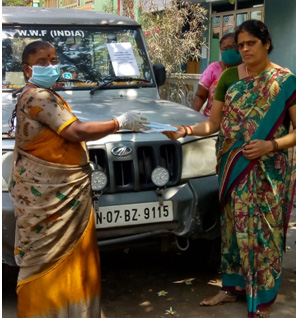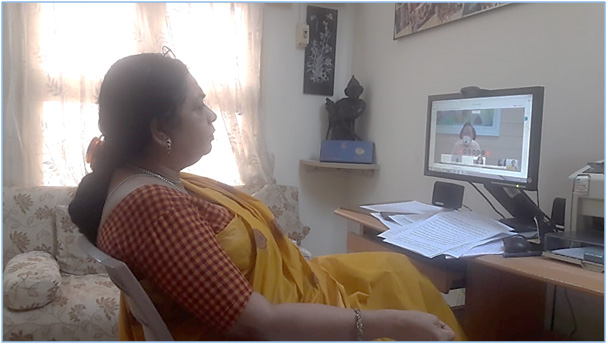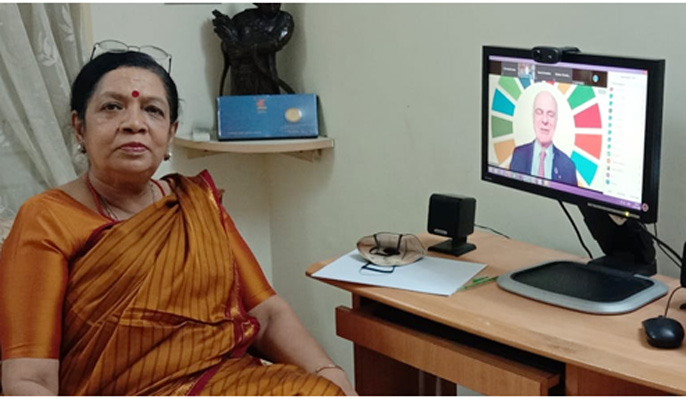Ever since the Covid 19 hit southern states of India Dr Nandini Azad, President of the Indian Cooperative Network for Women has been active as what she called “barefooted bankers trying to reach out to remote areas through whatever means available”.
Talking to Indian Cooperative she said we at ICNW have observed in the 4 states of South India that with the loss of livelihood due to the lockdown, members are not taking loans and trying to survive on their paltry savings.
“The heroines combating Corona” indeed are our poor women staff that lead this, said Dr Azad who is herself engaged in the frontline operations calling Collectors/SP’s, Municipal Commissioners, Tehsildars, BDOs for passes/ access to all locations to reach unserved areas.


In her presentation she highlighted “women are on the frontline of the battle to combat COVID-19 in India and the world. They are caregivers, health workers, entrepreneurs, mothers. Indeed, the focal point of the economic social cultural leadership of the family and community eco system at the grassroots are women. Special attention in programming could be given to them, during and after the crisis”.
“Unable to pay loan instalments, poor women’s informal sector cooperatives such as ours have begun to revamp and reschedule loans. Women entrepreneurs’ income has nose-dived impacting their food security and health conditions. Random surveys of several branches and women members led to a linear conclusion— when there is no income, no buying power, women’s nutrition and malnourishment suffer hugely”, she asserted.
Nandini also argued her case at the Niti Aayog (webinar) during an Interaction with Union Health Minister Dr

Nandini says that her study is based on a large purposeful sample data of 10 thousand women in 13 locations of South India from the WWF and ICNW. “They are some of our Cooperative loanees, staff, members from the Maharashtra border (i.e., Bidar) to Dindigul (3 hrs from Rameshweram), who we enquired into stage III 

She was alarmed however that food security and malnourishment of Women and children is increasing. The Government’s basic food rations have been useful. This scheme has provided basic resilience against hunger i.e., the line between survival and starvation.
“Cooperatives are working shoulder to shoulder with the Government in this pandemic. We welcome the two new infusions this week for the informal sector, form sector, MSMES and others to recover again’, she concluded.





















































